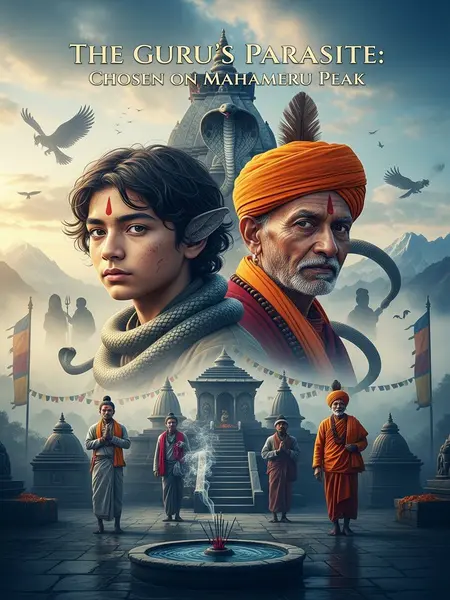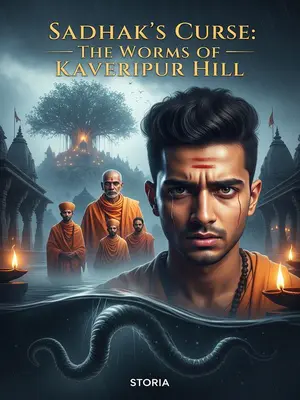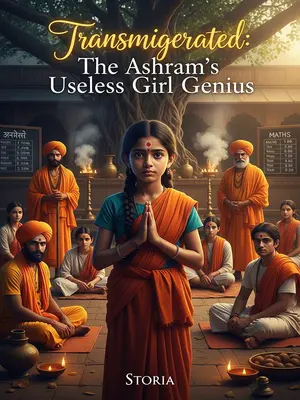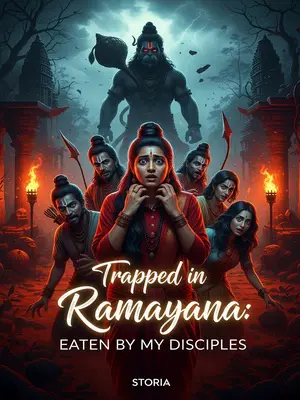Chapter 2: The Sabha Hall Trial
2
On Mahameru Peak, gurus abound.
From dawn to dusk, the air is thick with the sounds of conch shells, the scent of sandalwood, and the steady hum of sadhaks in meditation. Even the langurs watch with solemn eyes, as if they, too, await a sign from the gods.
Kiran dared not act rashly.
He began living a life of "pretending to take the Amritya tablet."
His routine was flawless—he ate with the others, joined the morning recitations, and, at dusk, sat quietly as if in deep sadhana. Yet, if one watched closely, there was always a hint of tension in his posture, a flicker of unease in his eyes, as though he expected the ground to give way beneath him.
I did not expose him, instead allowing him to continue his charade.
My disciples were even more anxious than I was, each like ants on a hot tawa, fretting over their junior brother.
The eldest disciple, Arjun, as his guide, personally led the little junior to plead for an opportunity—hoping to win Kiran a chance to purify his body in the Amrit Kund.
Inside the Mahameru Sabha Hall, watching the two of them waiting anxiously, I too felt uneasy.
The Sabha Hall, with its domed ceiling and ancient pillars etched with stories of legendary battles, was hushed. The air shimmered with expectation. The chill of the marble floor seeped into my feet, grounding me. A faint jingle of someone's rudraksha mala drifted from the shadows, and the lingering scent of camphor from a recent puja floated in the air. Even the youngest sadhaks pressed their palms together in silent anticipation.
The Amrit Kund is a unique treasure of Mahameru, a rare sadhana resource. Everyone who undergoes its baptism experiences a leap in their spiritual growth.
But I know: it is nothing but a pool of dead insect corpses.
Those who enter the Amrit Kund suffer the excruciating pain of body purification, then are reborn, their power greatly increased. But this so-called rebirth is merely parasites feasting on the corpses of their own kind, channelling their newfound strength into the puppet’s body.
As I pondered this, the marble wall not far away slowly opened. From the dazzling golden light stepped a bloated old man.
It was the Grand Guru—my own master, Mahadev.
I had not expected my master, who had been in death-closed-door tapasya, to awaken at this moment.
His presence was overwhelming. The air turned thick, as if the room itself was holding its breath. A faint smell of jasmine and camphor drifted in, and even the distant peacock calls seemed to hush in reverence.
Sadhana is strictly hierarchical: Pravesh, Ratna, Tejasvi, Atman, Vayu, Samadhi, Mahasamadhi, and finally, crossing the last barrier to moksha.
My master, the Grand Guru of Mahameru Sabha, is already at the late Mahasamadhi stage. It is said that the old man has already begun to transcend mortality, able to act as he pleases, yet never overstepping his bounds.
Though I have meditated for centuries, before my master I am but a babbling child.
Fresh from his tapasya, he still radiated a terrifying, oppressive aura.
Upon seeing Mahadev, Arjun joined his palms, bowed low, and said, "Pranam, Guruji. Arjun bows at your feet."
Arjun's voice trembled slightly, his forehead nearly touching the marble in full prostration. The rest of the hall watched in pin-drop silence, even the youngest acolytes barely daring to breathe.
Kiran, however, avoided his gaze, his body trembling slightly as he bowed alongside his senior brother. "Pranam, Grand Guruji. This disciple is striving hard in sadhana—please guide me."
My master approached Kiran, staring at him as he asked:
"Child, why have you not yet drawn prana into your body and completed your pravesh? Are you slacking off?"
Kiran hurriedly prostrated fully, stretching out on the cold marble floor as is tradition before elders. "Disciple is diligent in sadhana; may the Grand Guru see clearly."
As soon as he finished speaking, he was lifted into the air by my master. A violent surge of spiritual energy erupted.
The old man’s power was palpable, swirling like a cyclone, raising goosebumps on every arm in the hall. Some whispered a quick prayer, instinctively fingering their rudraksha beads for protection.
Master’s probing lasted a moment, then he voiced his suspicion:
"No trace of spiritual power in your body, and no sign of a pranic channel forming—how strange."
His grip tightened. "Then it must be that you have not taken the Amritya tablet."
Kiran’s face was pinched purple by the terrifying force, his legs flailing helplessly.
Then, a hint of killing intent crept into my master’s voice.
"You have not yet taken it… Or do you not wish to take it?"
The hall fell utterly silent. A few disciples exchanged worried glances, others quietly fingered their rudraksha beads, lips moving in silent prayers. The tension in the air was thick as ghee.
Looking at the nearly fainting Kiran and the Grand Guru’s fierce expression—one a disciple who has seen through the insect race’s secret and seeks escape, the other my master, who led me onto the path of sadhana and bestowed me with favour—I knew what I must do.










